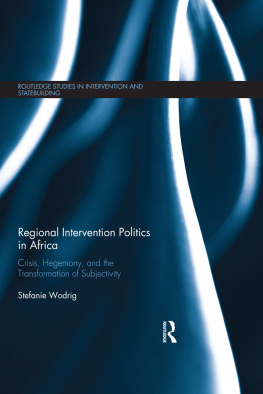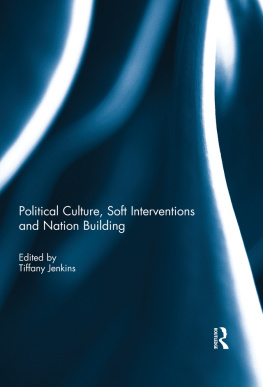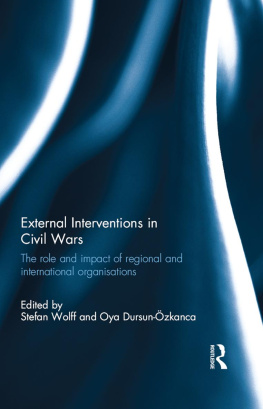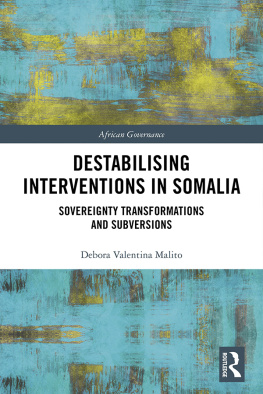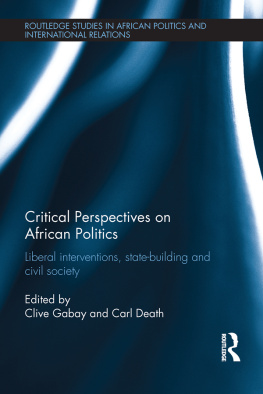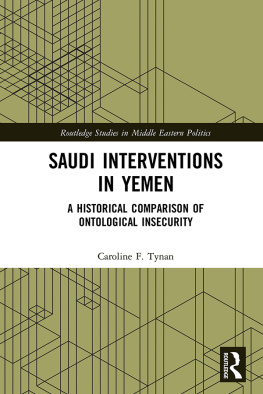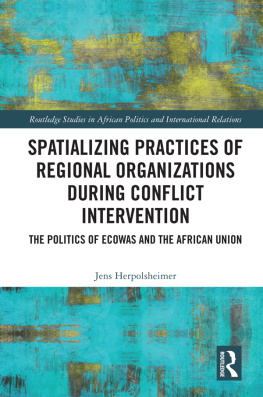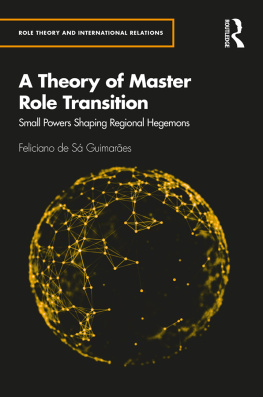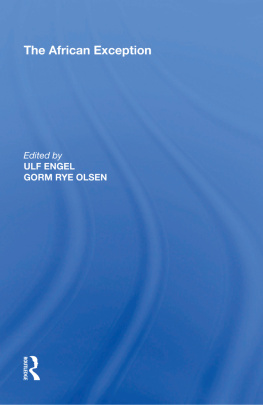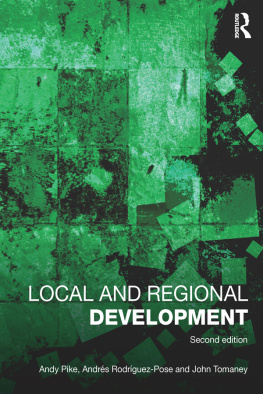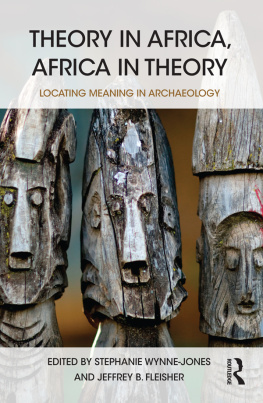Regional Intervention Politics in Africa
This book analyses regional interventions in African conflict spaces by engaging with political discourse theory.
Interventions are a performance of agency, but what happens if interventions are performed by forces that scholars have hardly ever considered as relevant agents in this regard? Based on a study of regional politics towards the crises in Burundi and Zimbabwe, the book analyses how these interventions shaped and changed the emerging regional interveners. The book engages political discourse theory, proposing an understanding of intervention as a field, in which multiple and heterogeneous interpretations of the violence, the crisis, and the future post-conflict order meet. It is not hard to imagine that this encounter is not harmonious per se but full of frictions. By making use of political discourse theory as a grammar for studying the complexity of an intervention, the focus is directed to the emerging subjectivities of regional interveners. This enables a view of regional interventions that neither reduces their subjectivity to universalist categories associated with liberal peace nor overenthusiastically embraces them as the solution to all problems.
This book will be of interest to students of international intervention, discourse theory, African politics, war and conflict studies, security studies and IR.
Stefanie Wodrig is a research fellow at the University of Kiel, Germany, and has a PhD in Political Science.
Routledge Studies in Intervention and Statebuilding
Series Editors: Aidan Hehir and Nicolas Lemay-Hbert
Founding Editor: David Chandler
Mediation and Liberal Peacebuilding
Peace from the ashes of war?
Edited by Mikael Eriksson and Roland Kosti
Semantics of Statebuilding
Language, meanings and sovereignty
Edited by Nicolas Lemay-Hbert, Nicholas Onuf, Vojin Raki and Petar Bojani
Humanitarian Crises, Intervention and Security
A framework for evidence-based programming
Edited by Liesbet Heyse, Andrej Zwitter, Rafael Wittek and Joost Herman
Internal Security and Statebuilding
Aligning agencies and functions
B.K. Greener and W.J. Fish
The EU and Member State Building
European foreign policy in the Western Balkans
Edited by Soeren Keil and Zeynep Arkan
Security and Hybridity after Armed Conflict
The dynamics of security provision in post-civil war states
Rens C. Willems
International Intervention and Statemaking
How exception became the norm
Selver B. Sahin
Rethinking Democracy Promotion in International Relations
The rise of the social
Jessica Schmidt
The Politics of International Intervention
The tyranny of peace
Edited by Mandy Turner and Florian P. Khn
The Practice of Humanitarian Intervention
Aid workers, agencies and institutions in the Democratic Republic of the Congo
Kai Koddenbrock
Peace Figuration after International Intervention
Intentions, events and consequences of liberal peacebuilding
Gzim Visoka
Regional Intervention Politics in Africa
Crisis, hegemony, and the transformation of subjectivity
Stefanie Wodrig
First published 2017
by Routledge
2 Park Square, Milton Park, Abingdon, Oxon OX14 4RN
and by Routledge
711 Third Avenue, New York, NY 10017
Routledge is an imprint of the Taylor & Francis Group, an informa business
2017 Stefanie Wodrig
The right of Stefanie Wodrig to be identified as author of this work has been asserted by her in accordance with sections 77 and 78 of the Copyright, Designs and Patents Act 1988.
All rights reserved. No part of this book may be reprinted or reproduced or utilised in any form or by any electronic, mechanical, or other means, now known or hereafter invented, including photocopying and recording, or in any information storage or retrieval system, without permission in writing from the publishers.
Trademark notice: Product or corporate names may be trademarks or registered trademarks, and are used only for identification and explanation without intent to infringe.
British Library Cataloguing in Publication Data
A catalogue record for this book is available from the British Library
Library of Congress Cataloging in Publication Data
Names: Wodrig, Stefanie, author.
Title: Regional intervention politics in Africa : crisis, hegemony, and the
transformation of subjectivity / Stefanie Wodrig.
Description: Abingdon, Oxon ; New York, NY : Routledge, 2017. | Series:
Routledge studies in intervention and statebuilding | Includes
bibliographical references and index.
Identifiers: LCCN 2016044282| ISBN 9781138218901 (hbk) |
ISBN 9781315436739 (ebk)
Subjects: LCSH: Peace-buildingAfrica, EasternInternational
cooperation. | Conflict managementAfrica, EasternInternational
cooperation. | Peace-buildingBurundi. | Conflict managementBurundi. |
Peace-buildingZimbabwe. | Conflict managementZimbabwe.
Classification: LCC JZ5584.A354 W64 2017 | DDC 327.1/170967dc23
LC record available at https://lccn.loc.gov/2016044282
ISBN: 978-1-138-21890-1 (hbk)
ISBN: 978-1-315-43673-9 (ebk)
Typeset in Times New Roman
by Wearset Ltd, Boldon, Tyne and Wear
This book is the final product of a long academic process that started at the beginning of my PhD. Here I want to thank all those people and institutions, without whose support the book would not have been written or would have been written in quite a different way. This book would not have come together without the academic and financial support of GIGA, the German Institute of Global and Area Studies, which I joined in 2010 as a graduate student. The graduate programme on the study of regional powers directed my attention to regional interventions; the research process greatly benefitting from the rich expertise at GIGA on comparative area studies in general and politics on the African continent in particular. When I began my research on regional interventions in eastern and southern Africa, Dirk Nabers encouraged me to think about the practices of regional intervention beyond disciplinary limits and read the work of Ernesto Laclau and Chantal Mouffe. Subsequently, their thinking (or better said, my reading of their work) became the primary theoretical inspiration for this book. Thank you, Dirk, for your assistance.
I will depart from the custom of thanking ones partner at the end of the acknowledgements as Andr Bank was a principle source of academic and personal inspiration. The book greatly benefitted from his deep understanding of violence in the neighbourhood, his advice during the research process, as well as his commenting on countless versions of the manuscript. I also owe him credit for sharpening the research question that guides the analysis of this book. Thank you for supporting me throughout the process of researching and writing this book and much beyond!
This book would be very different without the two research stays in Tanzania 2011 and South Africa 2012, which were generously funded by GIGA. I particularly want to thank the people that I conducted interviews with in Tanzania, South Africa, and Zimbabwe. The interviewees devoted their time for my questions without receiving much in return. A special thanks goes to Azaveli Lwaitama who was very supportive in addressing the diverse challenges I faced while conducting research in Tanzania. Kristina von Knobelsdorff and Emilie Lacroux gave me a warm welcome, rendering my stay a very pleasant experience. While I was a guest scholar at the University of Witwatersrand in Johannesburg, Gilbert Khadiagala was very helpful in providing me with additional contacts. Thanks to Julia Scheller, Martina Schwikowski, Ash Jewnarain, and his friends for helping me to explore the non-scholarly side of this fascinating country.

